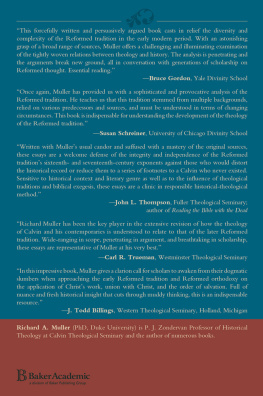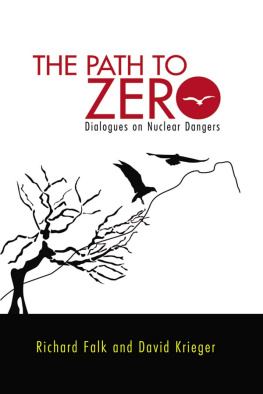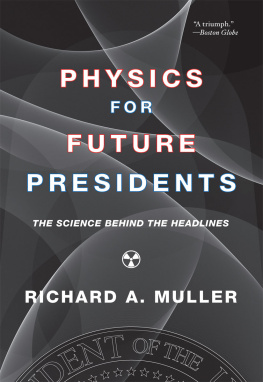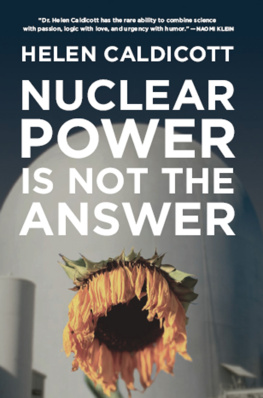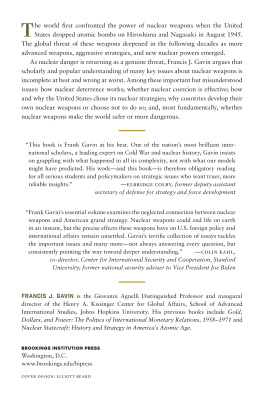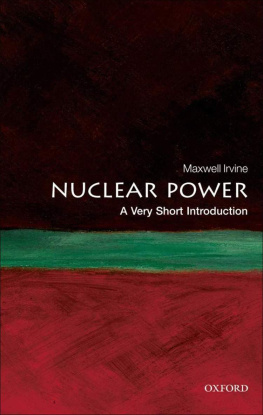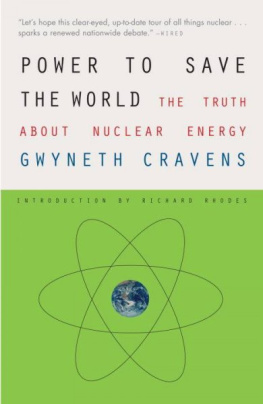RICHARD A. MULLER
Images in this ebook are not displayed due to permissions issues.
Copyright 2008 by Richard A. Muller
Muller, R. (Richard)
Physics for future presidents: the science behind the headlines / Richard A. Muller.
p. cm.
Includes bibliographical references.
ISBN: 978-0-393-06989-1
1. PhysicsSocial aspects. 2. Science and state. 3. Science in mass media.
I. Title.
QC28.M85 2008
530dc22
2008006075
To L UIS A LVAREZ , for teaching me how to pursue scientific discovery, to D ICK G ARWIN , for showing me how to be effective in national security, and to A RT R OSENFELD , for inspiring my interest in energy and conservation
I NTRODUCTION
A RE YOU intimidated by physics? Are you mystified by global warming, spy satellites, ICBMs, ABMs, fission, and fusion? Do you think all nukes, those in bombs and those in power plants, are basically the same? Are you perplexed by claims that we are running out of fossil fuels when there are counterclaims that we are not? Are you confused by the ongoing debate over global warming, when some prestigious scientists say that the debate is over? Are you baffled, bewildered, and befuddled by physics and high technology?
If so, then you are not ready to be a world leader. World leaders must understand these issues. The moment when you are being told that a terrorist left a dirty bomb hidden in midtown Manhattan is not a good time to have to telephone your local science advisor to find out how bad the situation really is. Nor is it a good time simply to assume the worst, to decide that all government resources must now be pulled off other projects to address this new emergency. You have to know enough to act wisely, quickly, proportionately.
Maybe you did study physics, enjoyed it, maybe even majored in it, and yet even now, after you got your degree, you still dont know the important difference between a uranium bomb and a plutonium bomb, or between ozone depletion and greenhouse warming. And when your friends ask you about spy satellites, you tell them what you read in the newspapersbecause such details were never covered in your courses.
Many, if not most, important decisions today have a high-tech component. How can you lead your country into a clean-energy future if you dont understand solar power or how coal could be converted into gasoline? How can you decide important issues about research funding, arms control treaties, threats from North Korea or Iran, spying, and surveillance, if you understand only the political issues and not the technical ones? Even if you dont plan to be a world leader, how can you vote intelligently without understanding these issues?
Equally important to understanding the physics of modern life is unlearning the things that you may think are true but arent. Mark Twain is often quoted as saying,
The trouble with most folks isnt their ignorance. Its knowin so many things that aint so.
Ironically, this quote isnt even from Twainas if to illustrate the aphorism itself. The quote is correctly attributed to Josh Billings, a nineteenth-century humorist.
Dont know the physics you need to know? Fortunately, you have found the solution, or at least the beginning of the solution. This book covers advanced physics, the stuff that world leaders need to know. I skip the math because you dont have time (or possibly the inclination) to master it. I move right to the important issues. When you understand the underlying principles, the physics, you need never again be intimidated by high tech. And if you ever need a detailed computation, you can always simply hire a physicist.
If you hate physics, it isnt your fault; you probably had a bad teacher. Some physicists intimidate outsiders by obscuring their knowledge in a fog of math. Among themselves, they are careful to distinguish physics from math. Graduate students are admonished, Think physicsnot math. But whenever it is a little tricky to explain something, the physics teacher has an easy way out: Here, let me show you an equation that you cant possibly understand, and then you wont blame my poor teaching.
I offer only one caution. This book is not long enough to be a comprehensive review of anything. That means I leave out a lot about terrorism and counterterrorism, about energy and satellites and global warming. I dont apologize for that. Future presidents have additional things they need to know besides physics. Many people would like their president to be an expert in technology. I am more realistic. I try to cover in this book only the most essential facts and ideas, the key concepts that will help a president make better decisions. I could write a much longer book, but would a future president have time to read and study it?
I begin with terrorism because of its immediacy and because it draws us right into the subject of energy. After all, what is a bomb other than a quick way of delivering a huge amount of energy to a small space? What happened at the World Trade Center is much clearer when you understand the physics. Even biological weapons are easier to understand when you understand the relevant physics.
The second subject I cover is energy, a topic of central concern for all world leaders. Economies are made and broken by energy; countries go to war over energy; wasteful use of energy could destroy our ecology. Where do we get it, how do we use it, and can we avoid wasting it? There are many surprises about energyfacts that define and limit future technologieseverything from the possible hydrogen economy to the future of coal and oil and solar. Our love affair with fossil fuel, it turns out, has a foundation in physics.
Closely related to energy are nukes: radioactivity, bombs, reactors, dangers of wasteand the subject of the third major section of the book. A president must protect the public, but does that mean using nukes or ruling them out? There is no easy answer here, and decisions must be made on the detailsphysics details.
Our future clearly lies in spaceor does it? It is thirty-nine years after Apollo 11, and we have not yet returned to the Moon. Whats going on? Whats holding us back? Is it economics, human will, or physics? What is the value of space? What does it mean to go into orbit? What are the real limitations? The fourth section of the book is devoted to space, satellites, and understanding the potential and limits of gravity.
Finally I touch on the hottest topic of allglobal warminga subject that spans so many different areas of physics that it has to have a section to itself. Moreover, it is a subject in which misinformation is as prevalent as truth. You may have to unlearn some cherished facts, but you need to do that to be able to make wiser decisions when you are president.
All of this is physics by total immersion. Dont pause too long if you find something confusing. Learn it like a foreign language: dive in, swim through it, wallow in it, andmost of allenjoy it. Some material will be covered in more than one section. Thats because the world is intertwined; nukes are relevant to terrorism, energy, space, and global warming. I regret if your favorite topic isnt here, but this book had room for only the topics of the most urgent interest. (The subject of UFOs, for instance, had to be left to a sequel.) I try hard to stay away from issues in politics, business, and diplomacy. Economics does creep in from time to time, but that is not the emphasis. This is the physics that you need to know to be a world leader. The rest is up to you.


